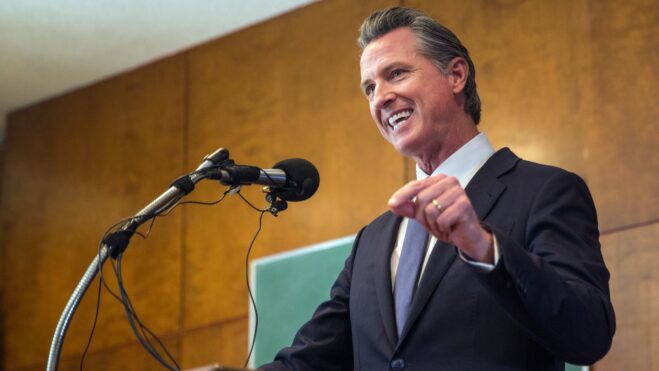Sports Betting Tax Hikes Are Taking Center Stage On Budget Battlegrounds
Illinois and Massachusetts are the latest states to consider substantial increases of the tax rates of online gambling operators.
2 min

The once-unthinkable prospect of legal sports betting is now a reality in over three dozen states, but a new battleground is emerging: taxation. From budget stalemates in Illinois to a contentious ballot measure in Massachusetts, states are grappling with whether to change their agreed-upon tax rates for this burgeoning industry, with significant implications for both potential revenue and the overall health of the market.
Illinois lawmakers in Springfield are facing a looming budget deadline and a major sticking point in sports betting taxes. This year’s $52.7 billion spending plan proposed by Gov. J.B. Pritzker hinges on a tax hike for sportsbooks, but negotiations within the Democratic supermajority have stalled. The debate reflects a growing national battleground over how to tax the industry.
Illinois currently levies a 15% tax on sports wagering revenue, a rate seen by some as insufficient to capture the industry’s windfall. Gov. Pritzker’s proposal seeks to increase that rate, but the exact figure remains under negotiation. Some Democrats are pushing back, wary of burdening a relatively young industry and potentially driving bettors to neighboring states with lower tax rates.
Massachusetts facing similar dilemma
This Illinois impasse mirrors a similar situation brewing in Massachusetts. There, Amendment 828 would allow the state to move the sports betting operator tax rate from 20% to 51%. The latter figure would match what New York already charges. Considering recent operator events in the state, the proposed increase is likely to prove divisive.
Proponents, including some lawmakers, argue the higher rate would generate much-needed revenue for education and addiction treatment programs. Opponents, including casino operators and some sports teams, warn the tax hike would stifle the nascent industry and push gamblers to neighboring states like Vermont and Connecticut, which boast lower tax rates.
Massachusetts’ high proposed rate raises questions about the long-term sustainability of such steep taxes. While New York raked in over $700 million in sports betting tax revenue in its first year of legalization, some analysts suggest the high tax rate may be limiting potential growth.
Other states green with envy
Beyond Illinois and Massachusetts, other states are also considering adjustments to their sports betting tax structures. In New Jersey, Sen. John F. McKeon proposed a bill in April that would roughly double the current tax rates for both online sports betting and casinos. The proposal would raise the levy from 13% to 30% for sportsbooks, aiming to capture a larger share of the industry’s revenue.
McKeon and other supporters of the increase point to neighboring states like Pennsylvania (36%) and New York, both of which are generating significantly more money for their coffers.
Ohio is trying to go in the opposite direction. Last year, it doubled the tax rate sports betting operators have to pay, bumping it to 20%. However, a new bill, Senate Bill 190, would push it back down to 10%. The bill is still in committee.
Colorado is reviewing its sports betting tax situation, as well, but from a different angle. A bipartisan proposal to eliminate a $29 million cap on the tax the state keeps from sports betting revenue will be on the ballot in November if approved by lawmakers. The additional money will fund water projects in the state.
The Illinois and Massachusetts debates highlight the balancing act policymakers face in regulating sports betting. While the industry offers a potential revenue stream, high tax rates can discourage participation and growth. Finding the sweet spot between maximizing revenue and fostering a healthy market will be crucial for states looking to tap into this growing sector.





